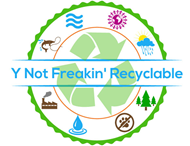[ad_1]
Spring 2020 Workshop Will Analyze Five Environmental Challenges
The newest cohort of Columbia University’s Masters of Public Administration in Environmental Science and Policy (MSP-ESP) began their new workshop course on January 22. The Workshop in Applied Earth Systems Policy Analysis serves as a defining element of the program, in which students will investigate policy or management problems faced by their clients in government and nonprofit agencies, both domestically and abroad.
Working under the supervision of faculty members, the students will write a report analyzing an actual environmental policy or management problem faced by their clients. The spring workshop allows the ESP students to apply what they have learned in the program to real-world challenges their clients face.
Read on to learn about the current MPA-ESP Spring 2020 Workshop Topics.

The MPA in Environmental Science and Policy cohort
Opportunities and Challenges for Water Reuse Policy in New York City: Applying Lessons Learned from the US and Beyond
Faculty advisor: Nancy Degnan
The US Environmental Protection Agency’s February 2019 draft of The National Water Reuse Action Plan, or WRAP, aims to address water resilience and security by partnering with state and local environmental departments throughout the country, particularly in water scarce locations. However, WRAP can also have broad implications for locations considered water-rich, such as New York City. Alan Cohn, the Managing Director of Integrated Water Management at the NYC Department of Environmental Protection (DEP) hopes to prepare the city’s water systems for climate change and population growth by: a.) understanding the challenges and opportunities for wastewater reuse in NYC; b.) learning from domestic and foreign municipalities’ water reuse experiences, in both water-rich and scarce regions; and, c.) setting up water reuse governance and oversight. This project will work with the NYC-DEP to identify unintended water reuse impacts; the type and scope of technology used and its effectiveness; appropriate approaches to cost-benefit analyses that consider the difference between water-scarce and water-rich cities; and education and training needs.
Regional Energy Independence in Northern California and Alternative Energy Analysis
Faculty advisor: Adrian Hill
As a result of climate change and years of fire suppression, California’s forests have become overgrown, providing ample fuel for intense and destructive wildfires. The Pacific Forest Trust (PFT) has identified a 7 million-acre region of Northern California as a critical part of the state’s natural resources. Managing this forest area requires the removal of small trees and ladder fuels that put larger, older trees at wildfire risk. Small-diameter wood material arising from these management activities has little economic value to the timber industry and instead gets exported to Europe and Asia for use in energy production. Shifting Northern California’s established electric grid to small scale biomass could reduce the non-use or export of woody biomass, putting it to work for local energy production. PFT hopes to understand the feasibility of and potential benefits, costs, and risks that exist with a transition to a woody biomass energy system in the region, and how it compares to other options.
Analysis and Assessment of Iceland’s Climate Action Plan for 2040
Faculty advisor: Eileen McGinnis
In September 2018, the Icelandic Government released a draft Climate Change Action Plan. The primary goal of the Action Plan is to design and implement measures that will assist the government in meeting its 2030 Paris Agreement targets – including the ambitious goal to make Iceland carbon neutral by 2040. The Action Plan focuses on two main methods of meeting its climate goals: 1) to phase out fossil fuels in transport, and 2) to increase carbon sequestration of woodlands and wetlands by planting vegetation and forests. The government is interested in having key measures of the Action Plan analyzed and evaluated for their overall potential contribution to meeting the 2030 and 2040 targets, as well as their cost-effectiveness.
Agroforestry Policy
Faculty advisor: Louise Rosen
Agroforestry, the integration of trees on farmlands, is recognized as an effective way to restore productivity of agricultural lands while improving tree cover and enhancing livelihood opportunities for communities. Despite examples of successful practices, India, Mexico, and Brazil — three countries which have implemented agroforestry policy — have faced barriers in implementation and scaling. This project will aim to provide a brief understanding of the political economy in these respective countries, analyze the factors that support and impede agroforestry.
The National Climate Bank: Sector-Specific Investment Opportunities to Reduce Emissions
Faculty advisor: Sara Tjossem
It would require an estimated $4.5 trillion of capital investment to the United States’ power platform for rapid decarbonization. Coalition for Green Capital (CGC) is a non-profit with a mission to address climate change by advocating for and creating Green Banks, a model that uses public funds to spark private investment in renewable energy and other decarbonization technologies. The CGC began advocating for the creation of an independent non-profit National Climate Bank in 2019, and found immediate success with the introduction of the National Climate Bank Act in the Senate on July 7, 2019, and the House companion bill on December 12, 2019. The objective of the Climate Bank is to maximize GHG emissions reduction per public dollar deployed through renewable generation, building efficiency, transmission, micro-grids, storage, agriculture, forestry, and resilience projects. Detailed questions remain – how will the Climate Bank actually work? It is imperative to understand how the National Climate Bank will invest in a specific sector, what tactics can be implemented to reduce emissions, and what any barriers to investment may be.
If you’re interested in learning more about the MPA-ESP program, please contact assistant director Stephanie Hoyt (sah2239@columbia.edu) with any questions or to schedule a campus visit. MPA-ESP is currently accepting applications for summer 2020 with an application deadline of February 15, 2020.
Source link
Y Not Freakin’ Recyclable Home
 Pollution Climate Change Holocene Deforestation Population Acidification Y Not Freakin' Recyclable
Pollution Climate Change Holocene Deforestation Population Acidification Y Not Freakin' Recyclable



